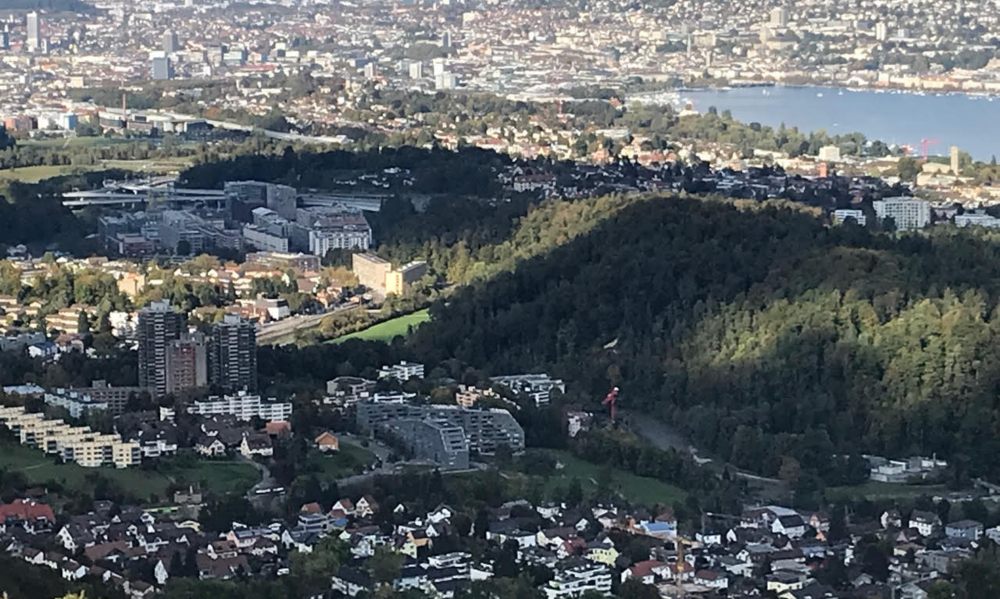
There are two things common in Seattle that you don’t see in Switzerland. You don’t see tent encampments under the bridges, sleepers in downtown doorways, men and women in dirt-caked pants pushing shopping carts piled with all they own going through trash cans for food. Nor will you find encampments of the homeless in the nearby forested areas.
And unlike downtown Seattle – though less in neighborhood business centers – you don’t see storefronts boarded up with graffiti-tagged plywood. Zurich’s Bahnhofstrasse, the main shopping street, is busy with pedestrians and trams and lined with international brand-name stores and, yes, more high-end Swiss watch and jewelry boutiques than you can count. Neighborhood business areas appear equally vibrant. Though as in Seattle, many restaurants still have COVID-impacted reduced hours. Proof of vaccination is now a government requirement for entry.
It’s not that homelessness is nonexistent. There’s just not a lot – well, practically none – compared to U.S. cities. Still, there’s enough to make the Swiss nervous. Research and attempts to count the homeless have increased since COVID. There’s not much data so far. Research by the School of Social Work at University of Applied Sciences Northwestern Switzerland estimated that around 100 people sleep outside or in emergency shelters in Basel. The city of Zurich estimated that at least a dozen people sleep on the street all year round. In April 2019 an “emergency sleeping center” in Zurich reported providing almost 5,000 overnight stays during the previous winter – but that works out to barely 40 people per night over four months in A metro area of about 1.4 million.
Seattle and King County public officials would weep if that was the extent of the homelessness problem they had to deal with.
The Swiss countryside – though hardly “countryside” since open fields and forests are often just on the other side of the back fence at the edge of cities and towns – offers another contrast with the Seattle area. As in the Northwest, there are extensive trails for hiking and mountain biking but in contrast to the Northwest where so much hiking is far from the city and often rugged, Swiss trails are literally everywhere next to farms and through carefully maintained woodlands (there are literally no natural forests), often connecting small towns and villages. (Fire prevention underbrush management is common but not universal.)
It’s this ease of access that provides another real benefit for the Swiss. (Cities are smaller; Zurich’s central city and the country’s largest, has only 430,000 people compared to Seattle’s nearly 760,000.) Except for the higher mountain trails, the pathways are designed for use by everyone from families with small children to the elderly. And there’s a benefit along walking trails virtually unknown in the Northwest. At the end or in the middle of your afternoon walk of a half mile or mile or a few miles, you’ll find a café – often as not with a view from outdoor seating – for coffee or lunch.
There’s a good chance this easy, pleasant access through the farms and forests around them reinforces the connection with the land and what it means to be Swiss – admittedly, something that’s been strained over the past 20-some years with the rise of populist political parties, particularly the Swiss Peoples’ Party (SVP), one of the strongest of similar groups widespread in Europe.
The much admired – or much mythologized – consensus-based Swiss political system has suffered under conflicting currents for and against change with the conservative and more rural SVP generally opposing European Union membership, other international involvements, and immigration. Urban and younger voters have moved toward the Greens and other left-of-center parties where the environment and climate change are more prominent issues.
Dick Lilly, author of the mystery Nothing Left to Lose available on Amazon, is spending a month in Switzerland visiting relatives near Zurich.
Discover more from Post Alley
Subscribe to get the latest posts sent to your email.
